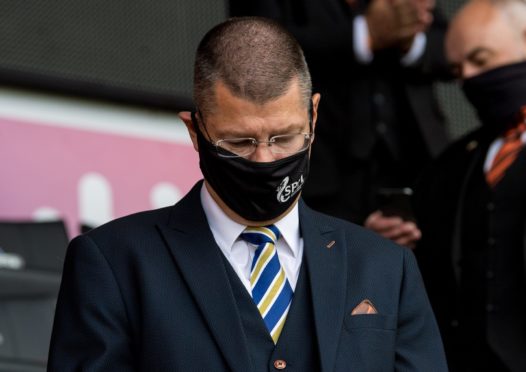
A phrase that sneaked into a few headlines around this time last year was “2020 vision”.
A play on the term opticians’ use for perfect eyesight, it generally drew readers into a bit of chat from a player or manager about their expectations for the coming year.
Twelve months on, and it is the mother-and-father of all understatements to say that not a single one of the interviewees came close to predicting what lay ahead.
A global pandemic. A racial reckoning. A Presidential impeachment. A monumental election.
The list is from the Washington Post, introducing the results of their invitation to readers to sum up 2020 in one word or a phrase.
“Nightmare”, “heartbreaking” and “a year of missing” were among the most-popular responses.
The best summation, though, was submitted by a nine-year-old from Michigan.
“Like looking both ways before crossing the street – and then getting hit by a submarine.”
Of course, the year’s problems were not confined to the United States.
For Scottish football fans, the first glimpse of the periscope speeding in their direction came at an appropriately-ominous moment.
It was on Friday, March 13, that the SPFL moved to postpone all professional and grassroots action with immediate effect.
Rangers were scheduled to host Celtic 48 hours later, and the perceived wisdom had it that the governing body would do everything in its power to keep the derby on.
Covid-19 was a concern, certainly, but that hadn’t stopped a crowd of 47,494 rocking up at Ibrox the previous night to watch the Light Blues play a Europa League round of 16 tie against Bayer Leverkusen.
Context is everything. At the time, there were just 60 confirmed cases of Covid in Scotland, and just under 600 in the whole of the UK.
The days of seven figures being required to accommodate the total number of UK cases were still far off in the distance.
Announcing the decision, Neil Doncaster, the League’s chief executive, spoke of a “fast-moving and unprecedented situation”.
He did not know it then, but soon he would be embroiled in unprecedented acrimony.
While other countries moved mountains to get their seasons completed, Scotland opted to call its leagues, through a controversial and drawn-out process.
It meant Celtic were able to celebrate their ninth title-in-a-row, but those clubs demoted off the back of incomplete campaigns – Hearts, Partick Thistle and Stranraer – were outraged.
A bitter war of words was fought throughout the summer, with the aggrieved parties turning to the law courts when their attempts to steer through league reconstruction failed.
Again, they found no satisfaction, and it was against that backdrop that expectations for football’s return were low.
Fans had been able to see plenty of closed-doors action from Germany (the Bundesliga restarted in May) and England (the Premiership went back in June), and been left underwhelmed.
“It’s strange and unfamiliar. It makes your heart bleed,” was the plaintive early verdict from Borussia Dortmund’s sporting director, Michael Zorc.
Against the odds, it might have been, but Scotland has managed to produce a hugely-entertaining few months of football since the action re-started.
In the season when Celtic are bidding for 10-in-a-row, there is a real title race, with the Hoops now knowing they will need to come from behind to catch Rangers if they are to reach their historic landmark.
The League Cup has thrown up a raft of shocks, with one of Livingston, St Mirren, St Johnstone and Hibs now certain to break Celtic’s monopoly of the domestic competitions.
Their long unbeaten silverware streak stopped at 12 with the capture of the William Hill Scottish Cup last week at the end of a tumultuous Final against Hearts.
Held at 2-2 at the end of 90 minutes, and 3-3 after extra time, they eventually prevailed in a penalty shoot-out.
The most-passionate and moving celebration, though, belonged to Scotland boss Steve Clarke and his players on qualifying for the Euros via some spot kick drama of their own in Serbia.
For a support reared on near misses and glorious failure, the prospect of going to a major Finals this summer is almost unbearably appealing.
Not least because the schedule includes Hampden ties against the Czech Republic and Croatia, as well as a Wembley encounter.
Vaccines allowing – and here Covid-19’s mutant variation hints that the Hollywood ending to this particular movie could be followed by a frightening sequel – all three could be played in front of full houses.
And in the process consign the “Happy New Tier” memes, currently circulating on social media, to a place in the memory banks alongside the 2020-vision headlines of a year ago.
Let’s hope so.

Enjoy the convenience of having The Sunday Post delivered as a digital ePaper straight to your smartphone, tablet or computer.
Subscribe for only £5.49 a month and enjoy all the benefits of the printed paper as a digital replica.
Subscribe